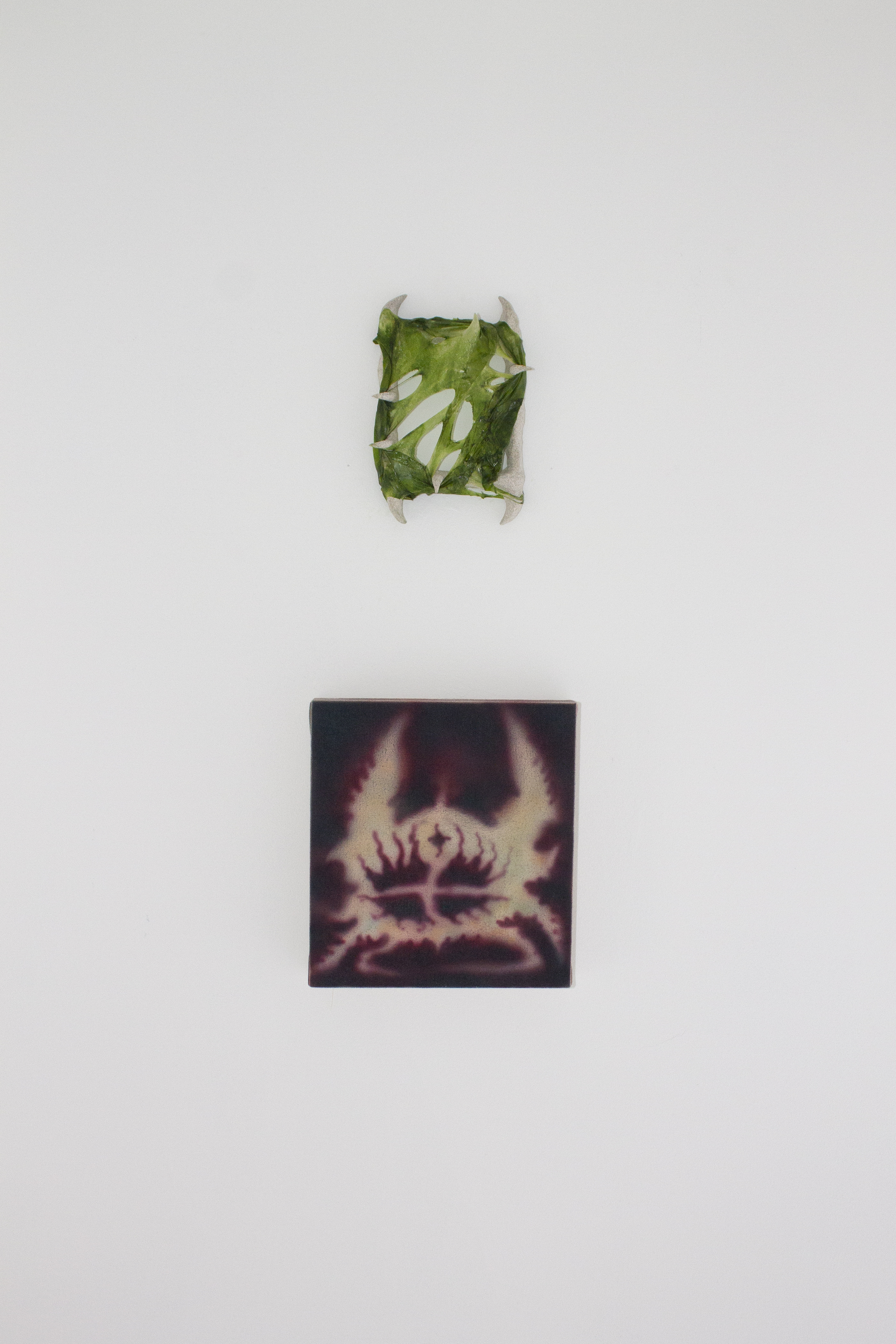





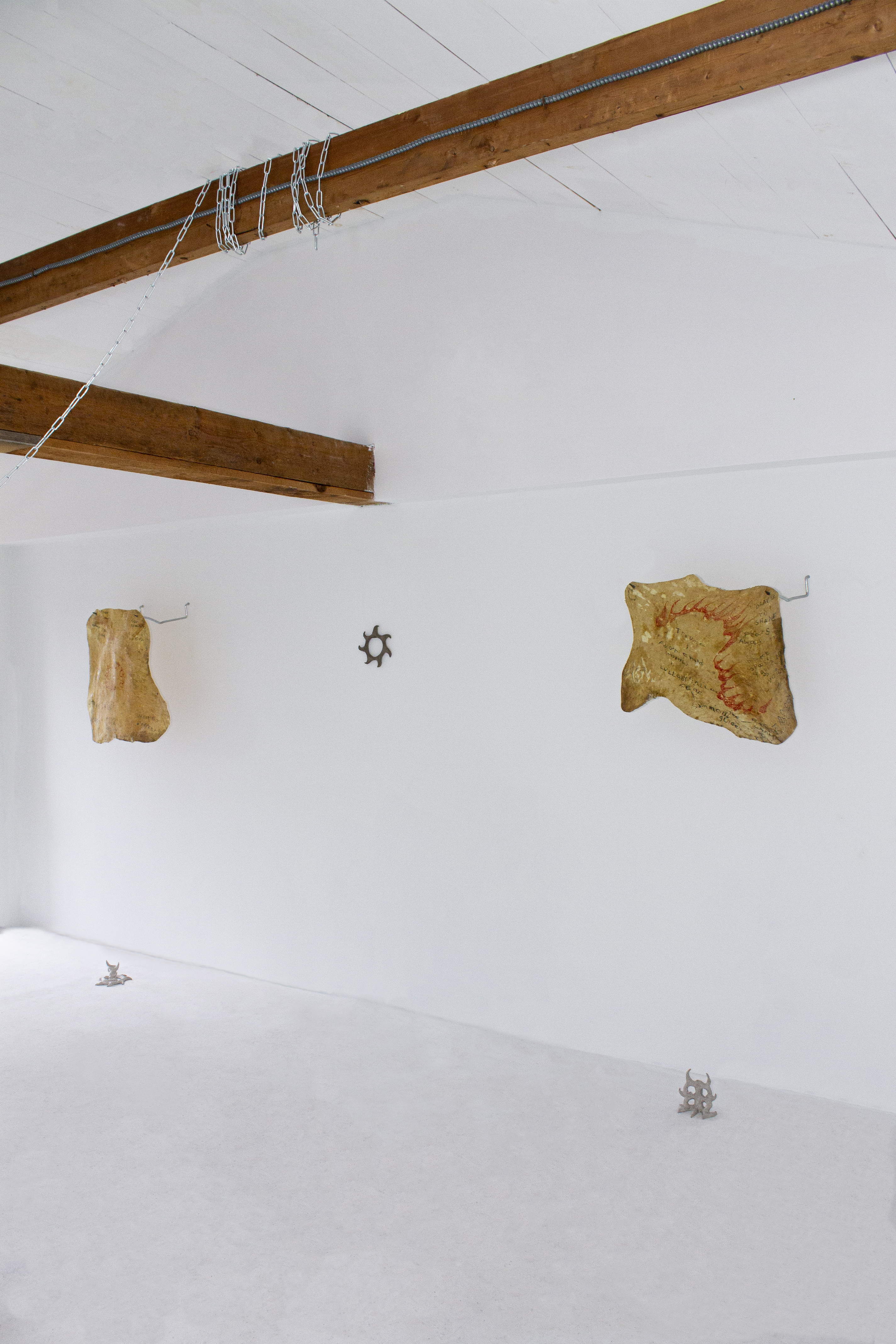
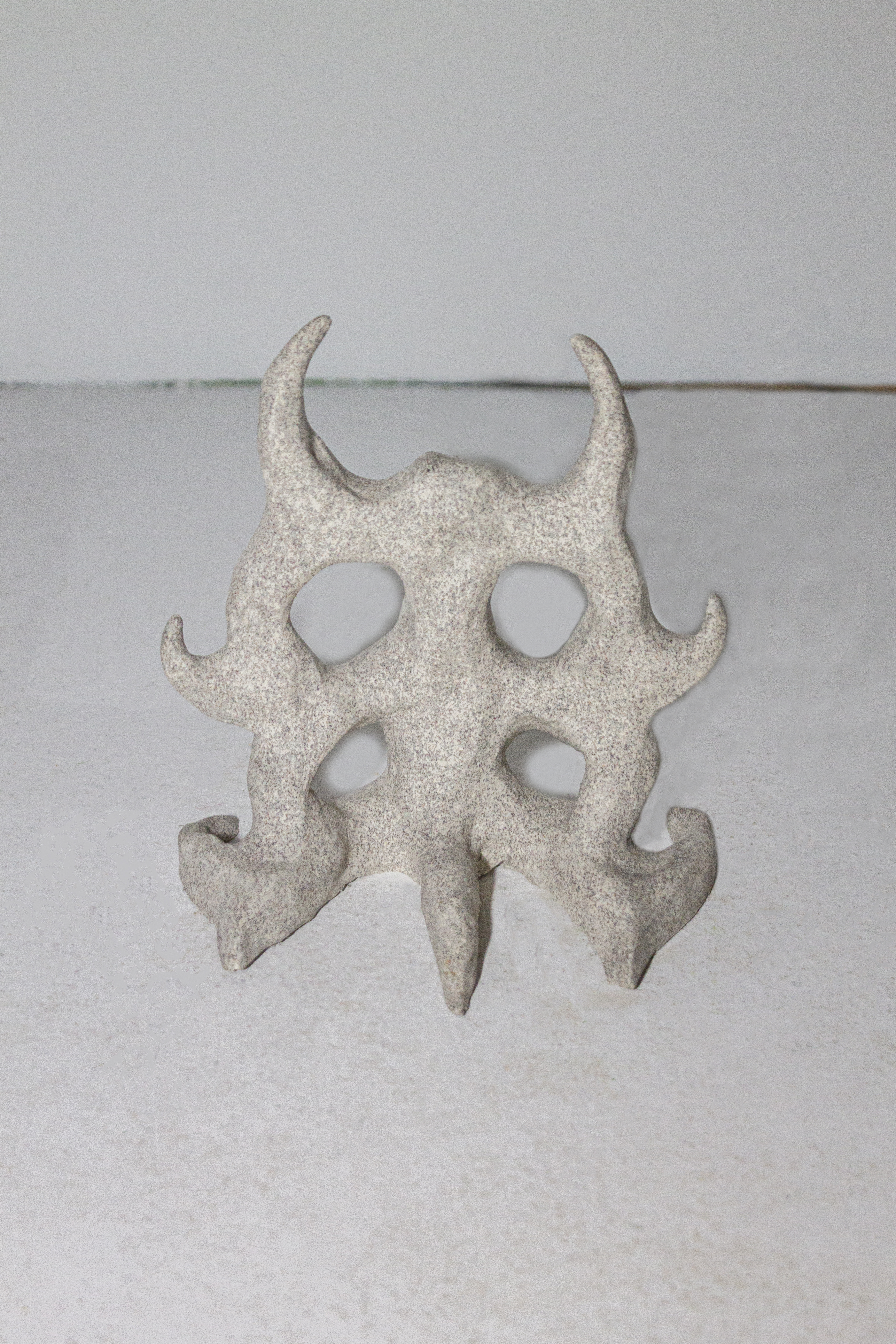
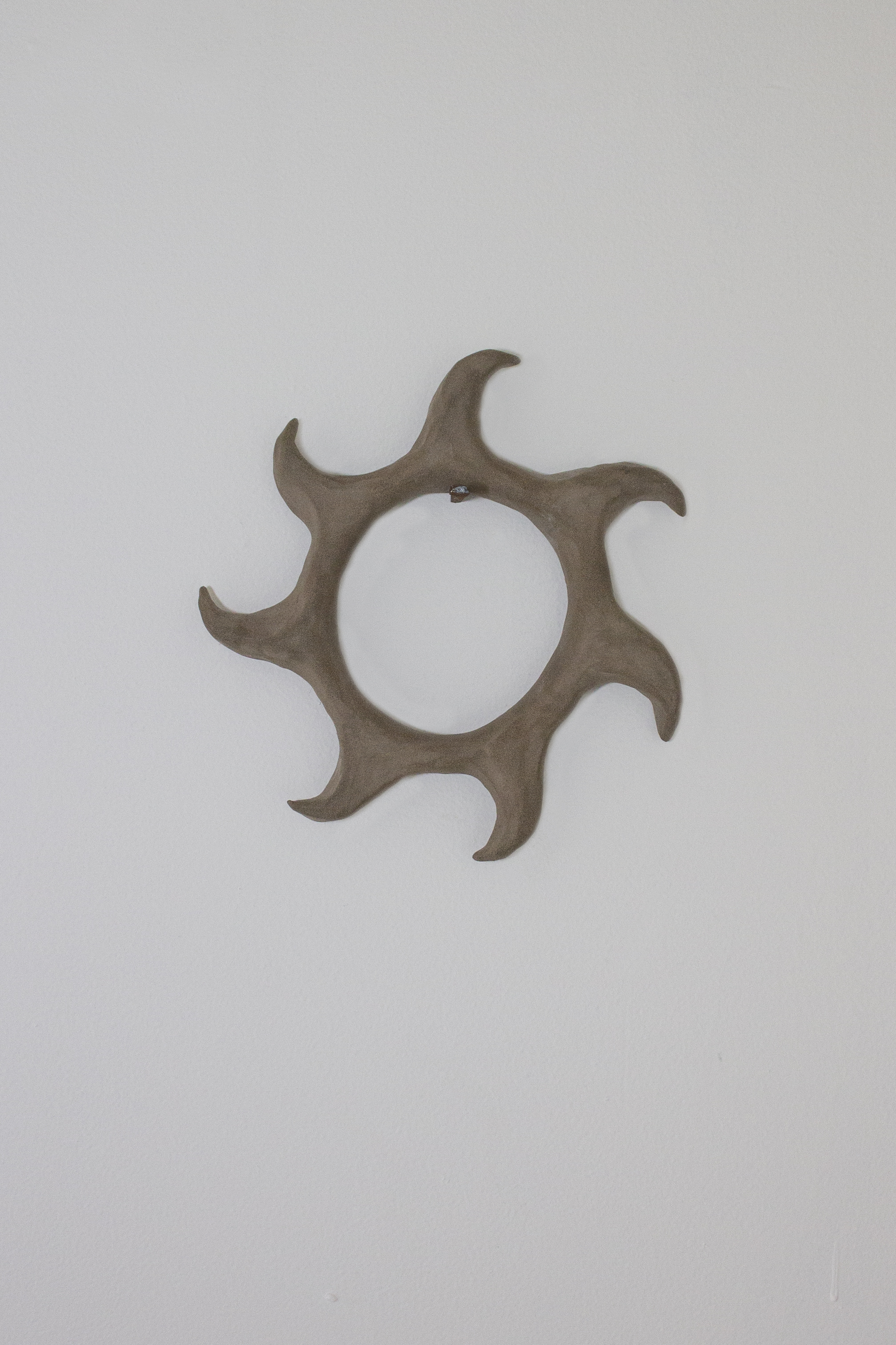
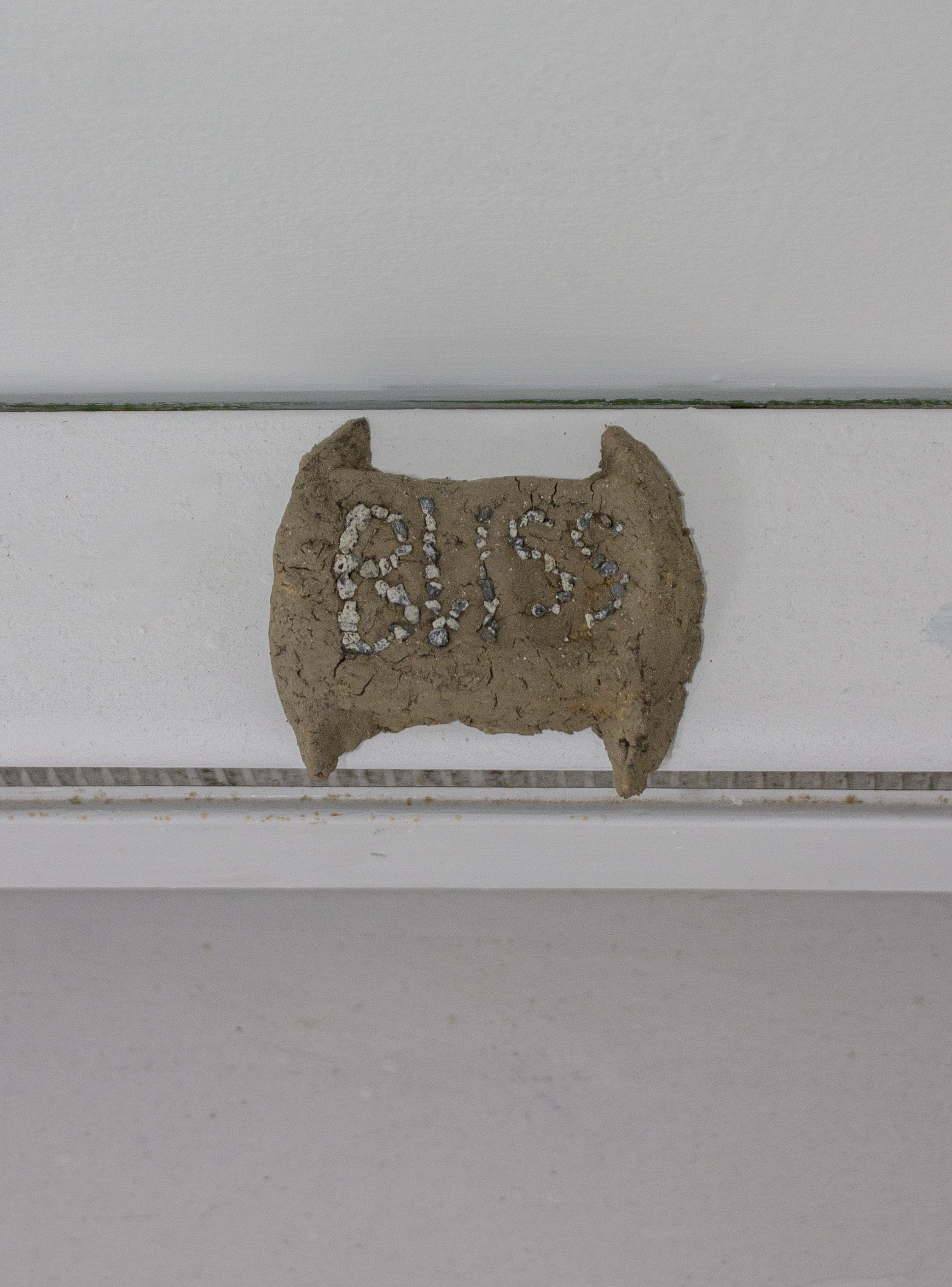
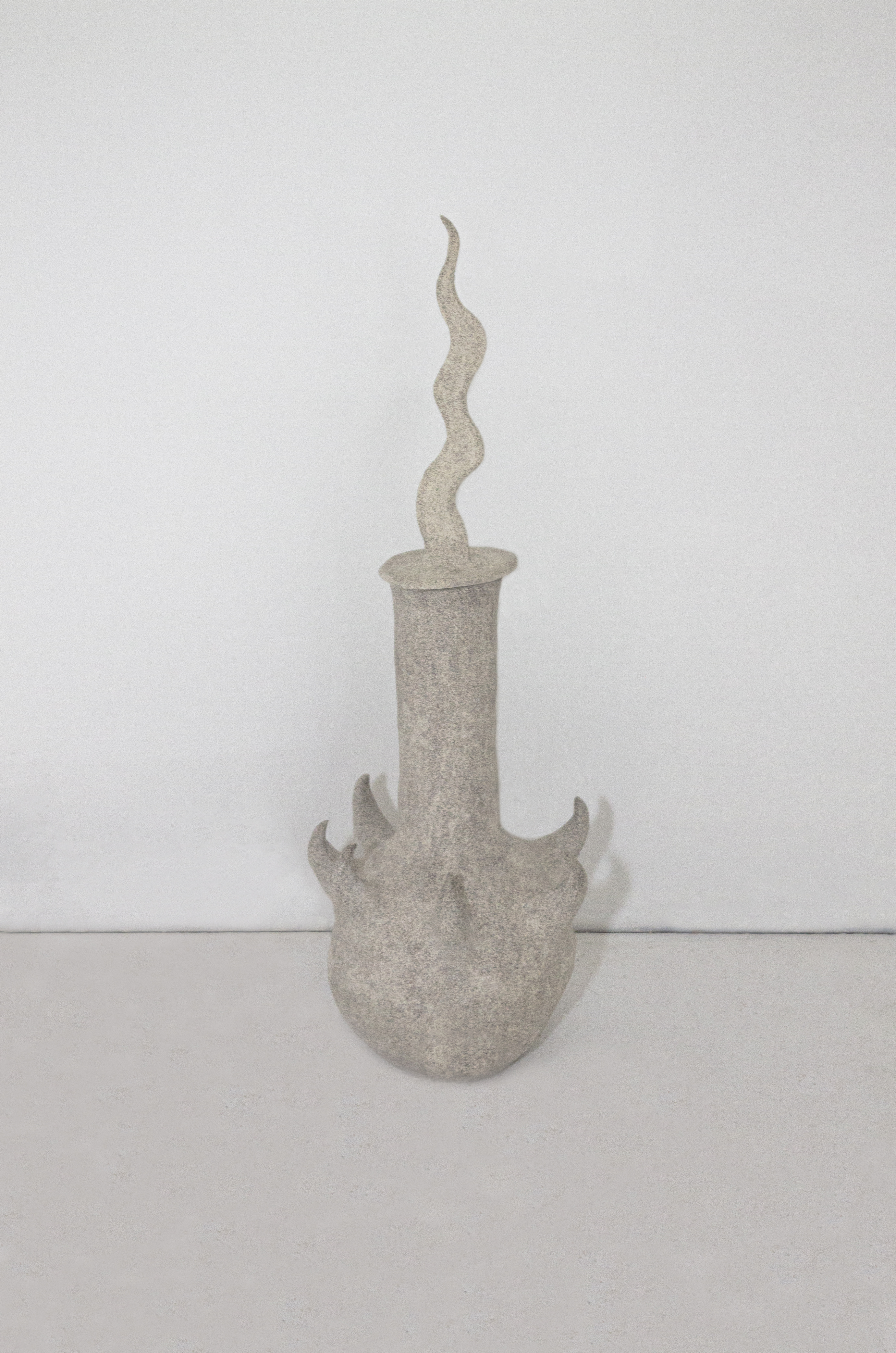
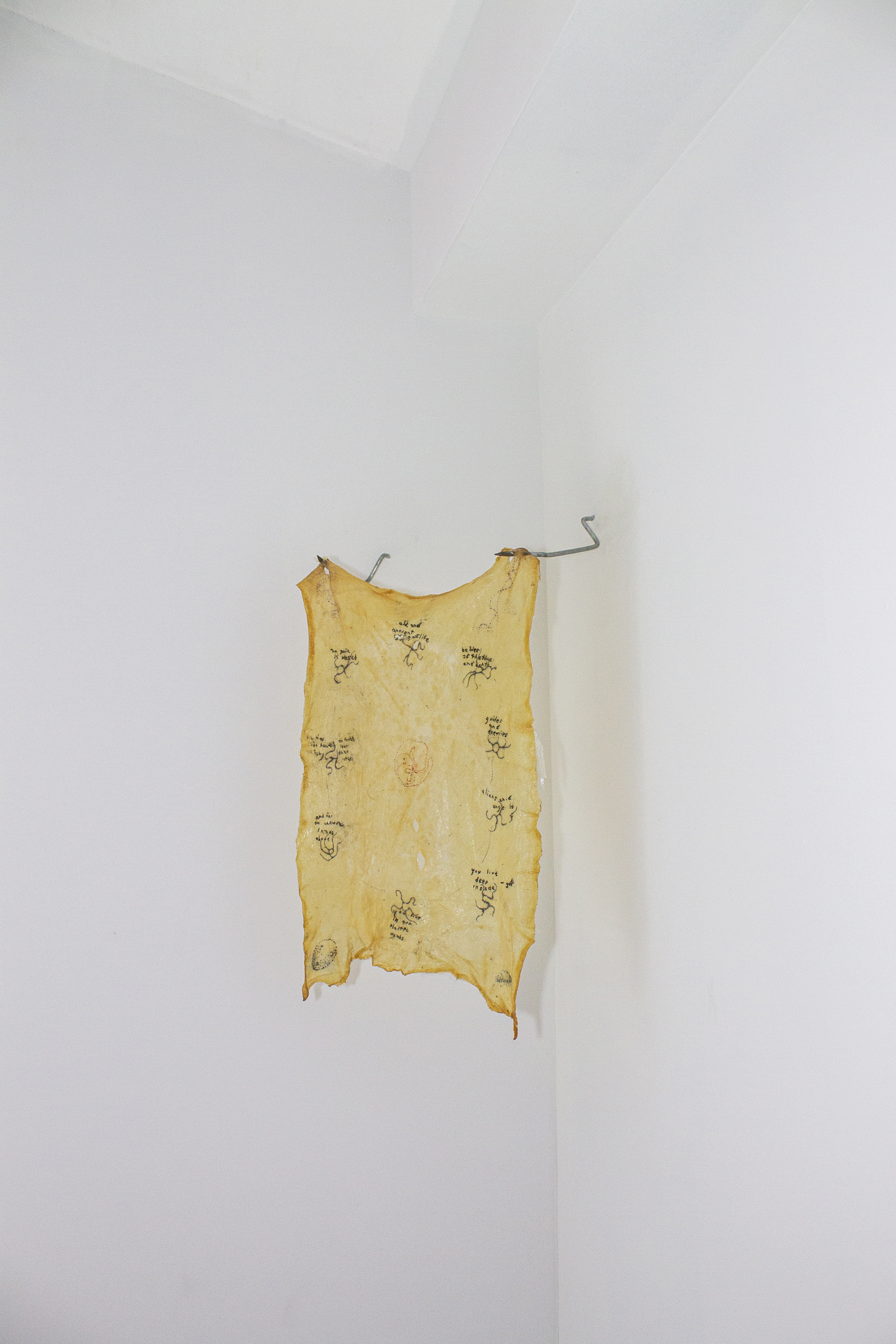
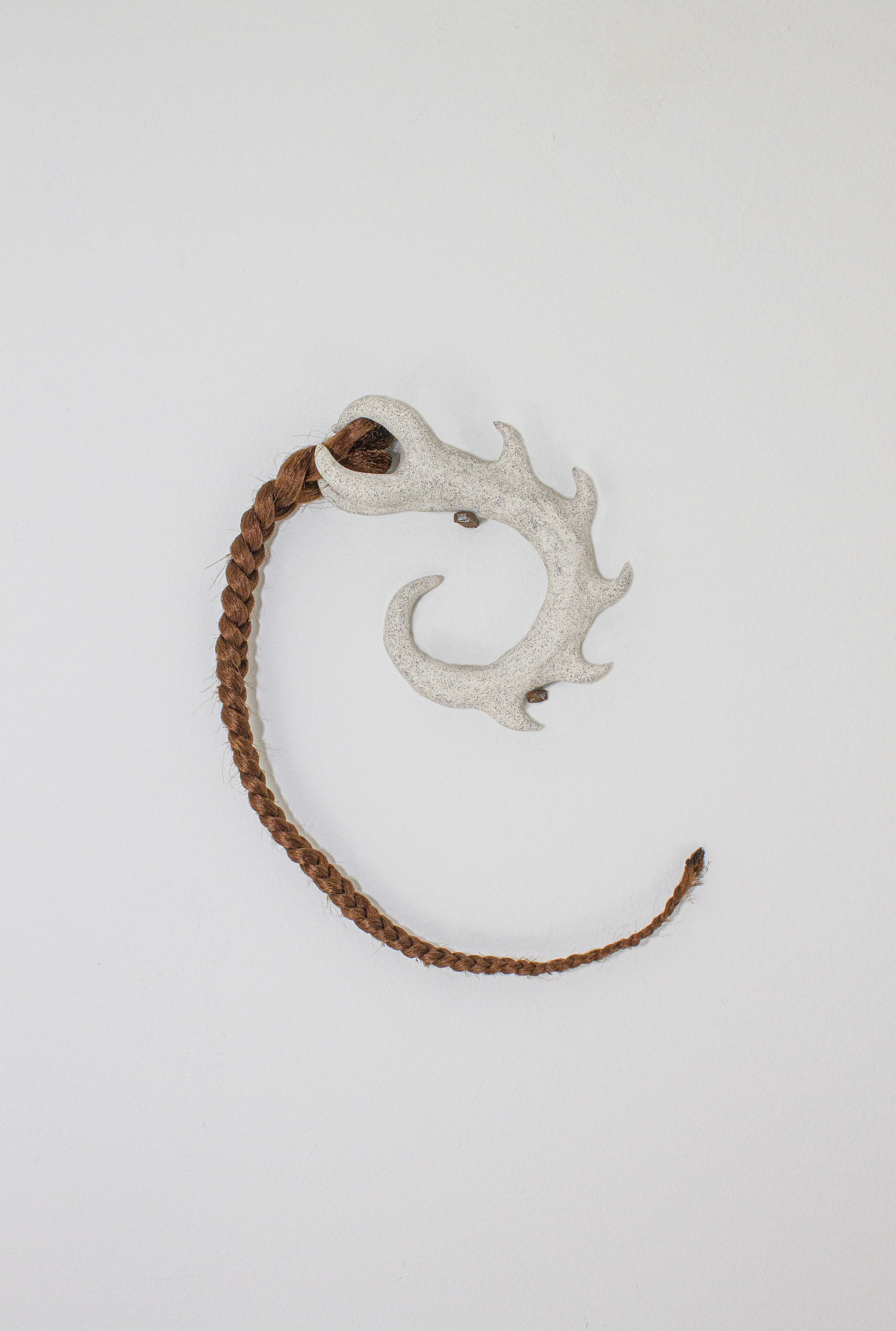

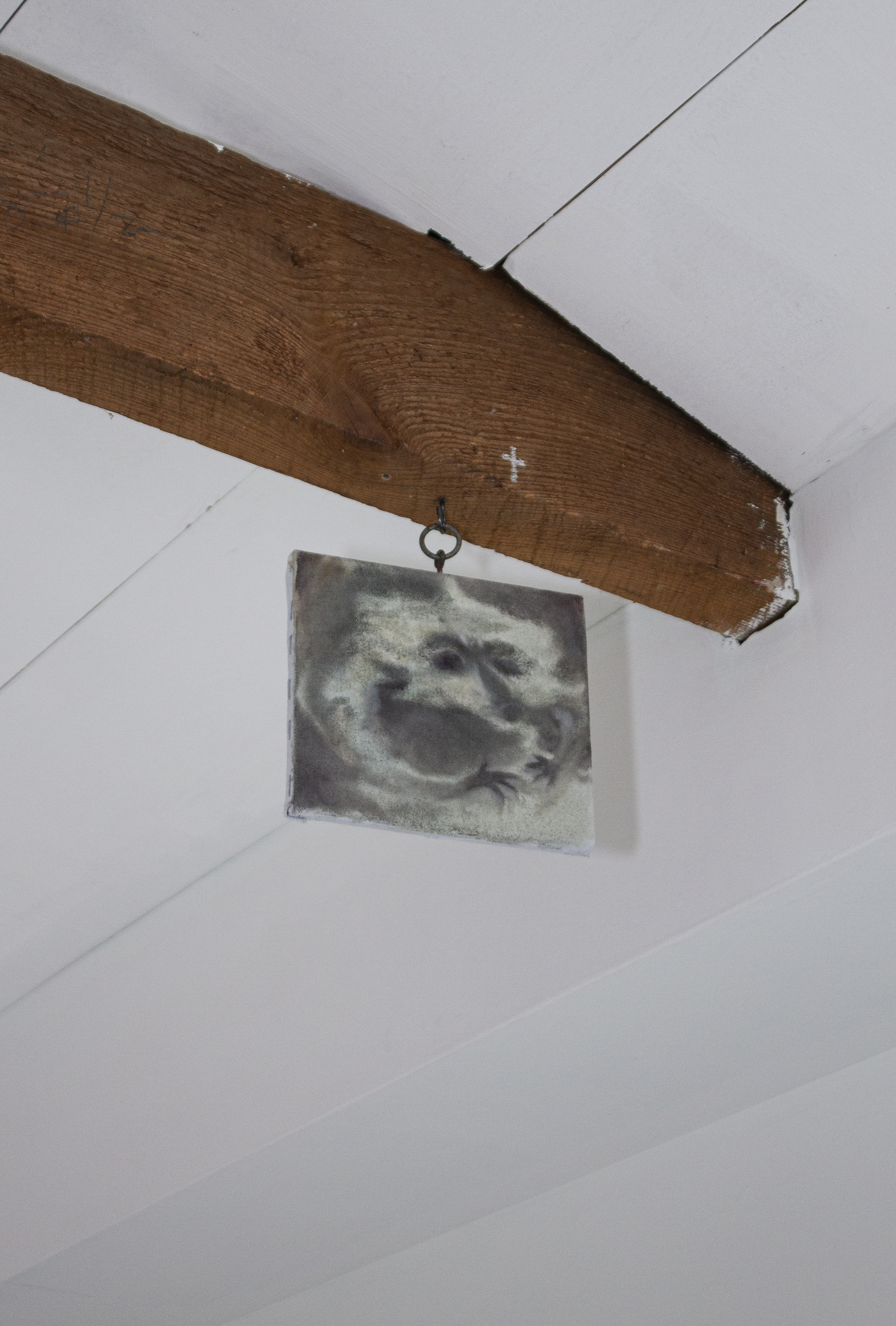
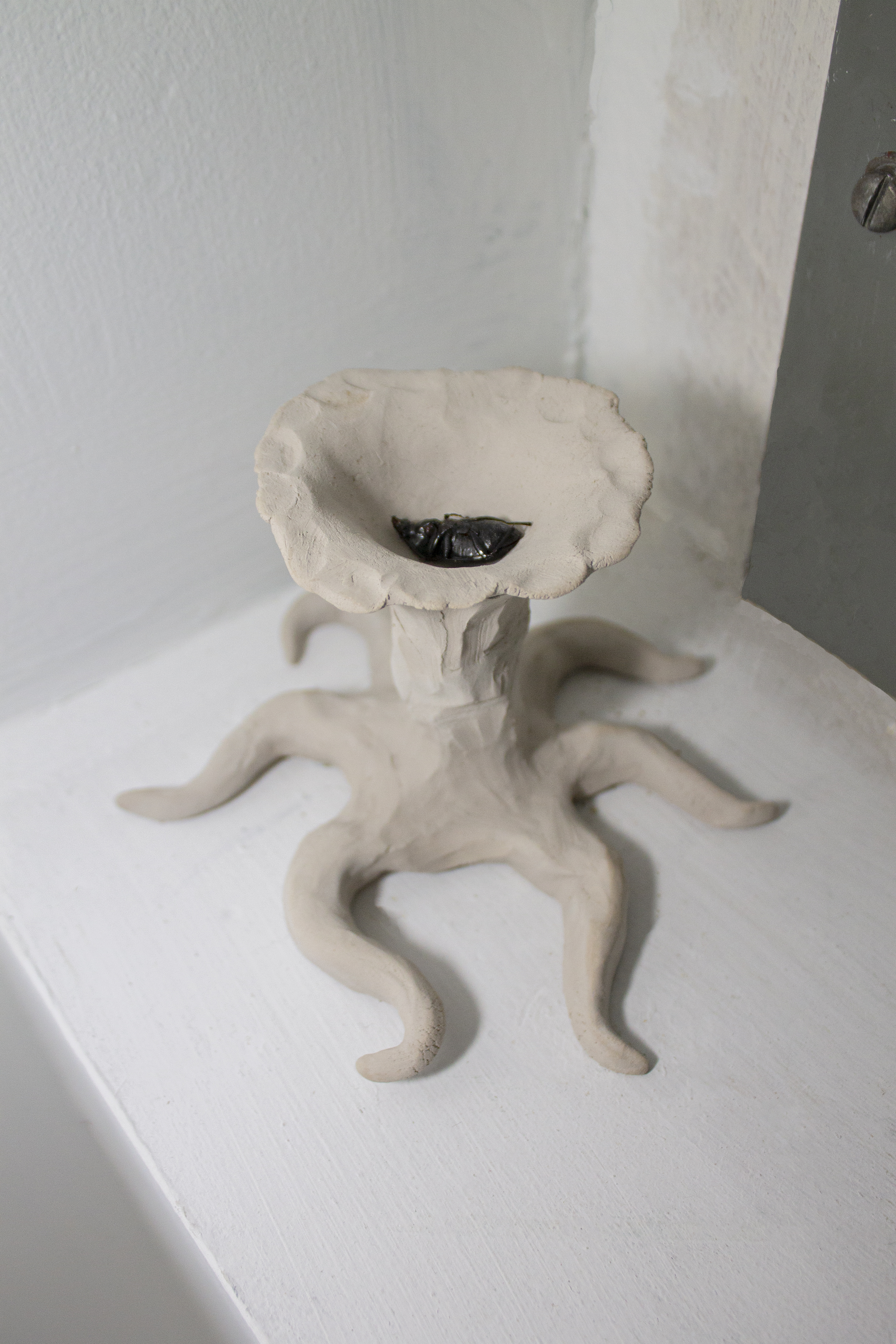
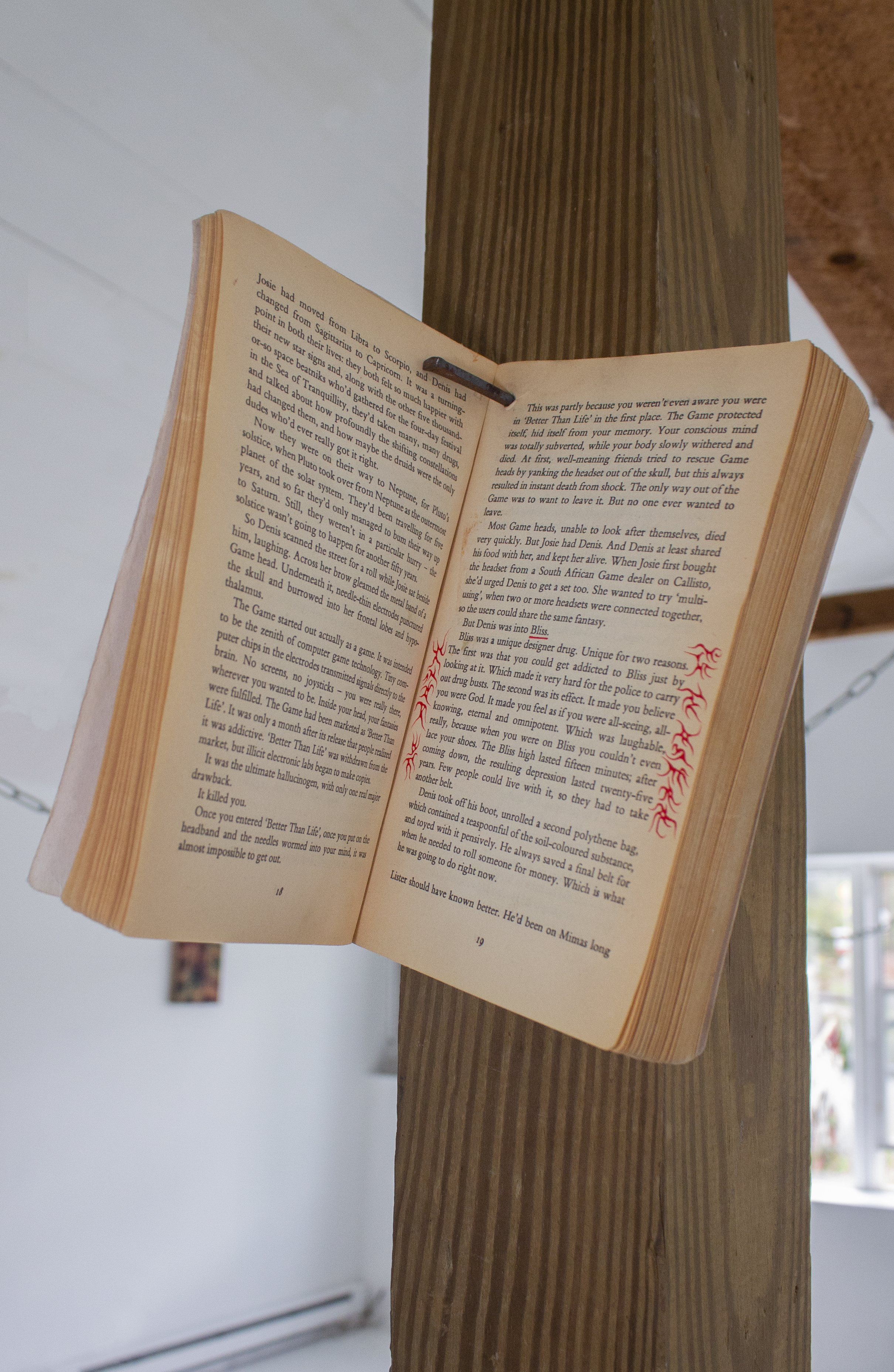
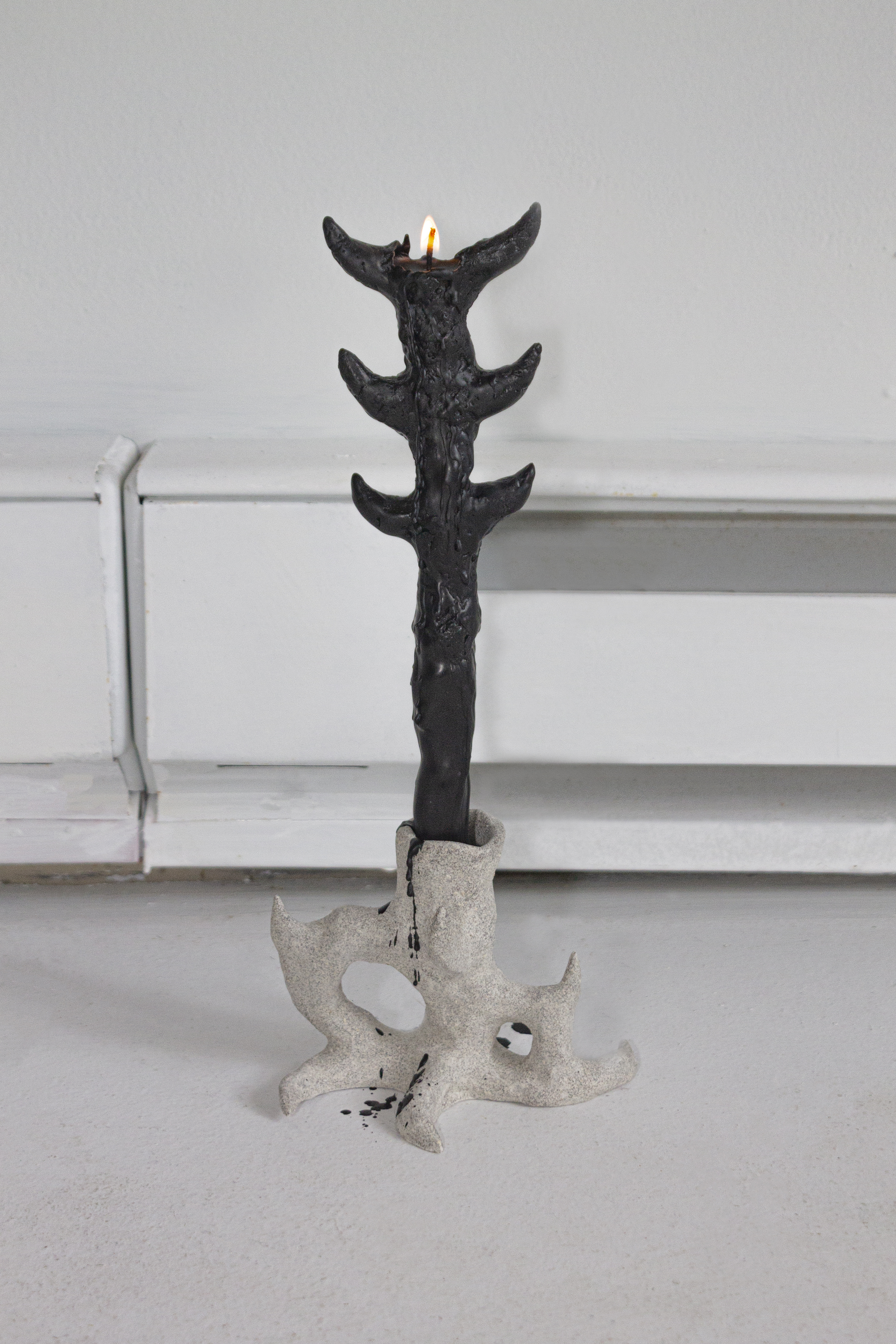
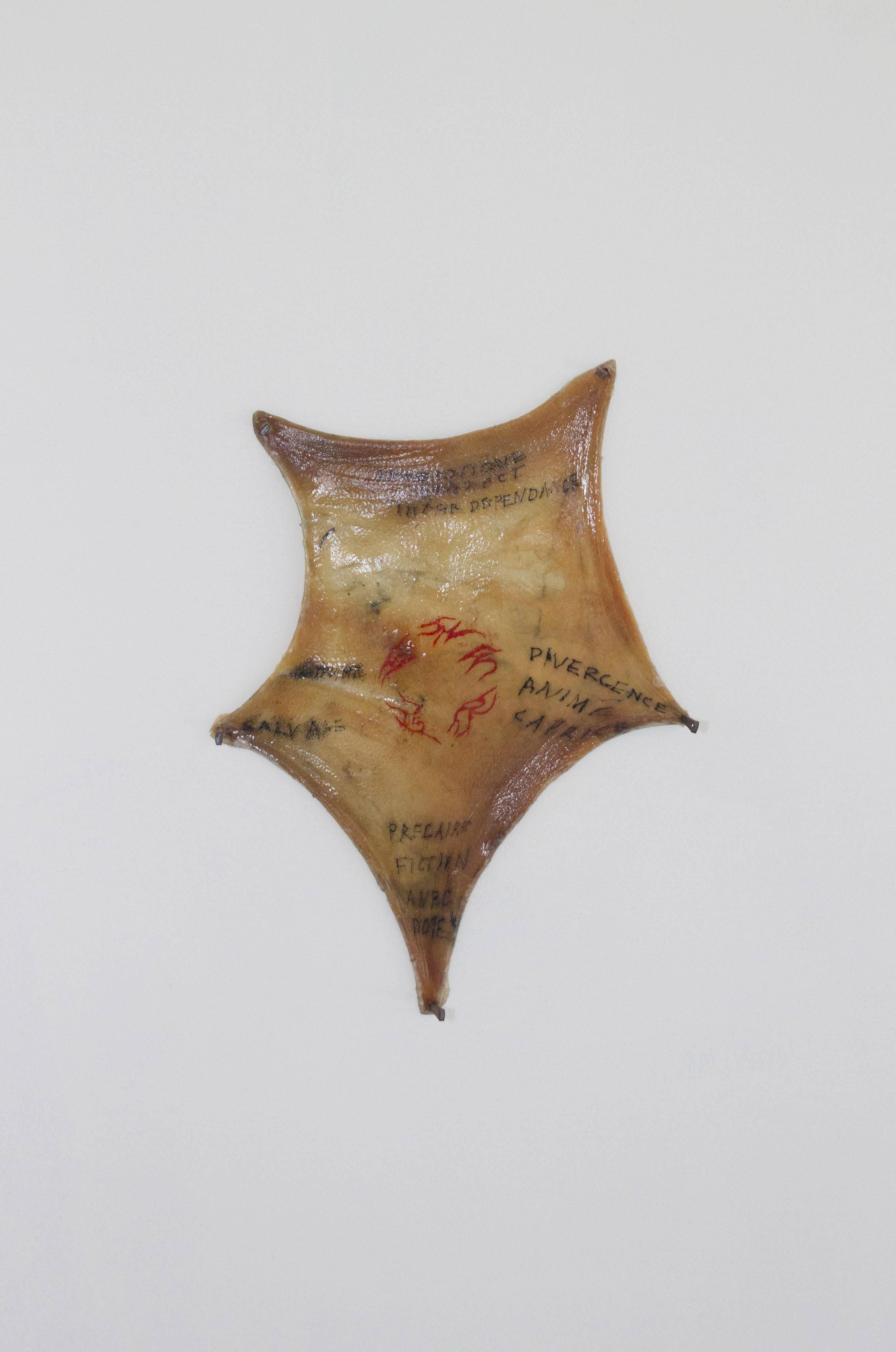
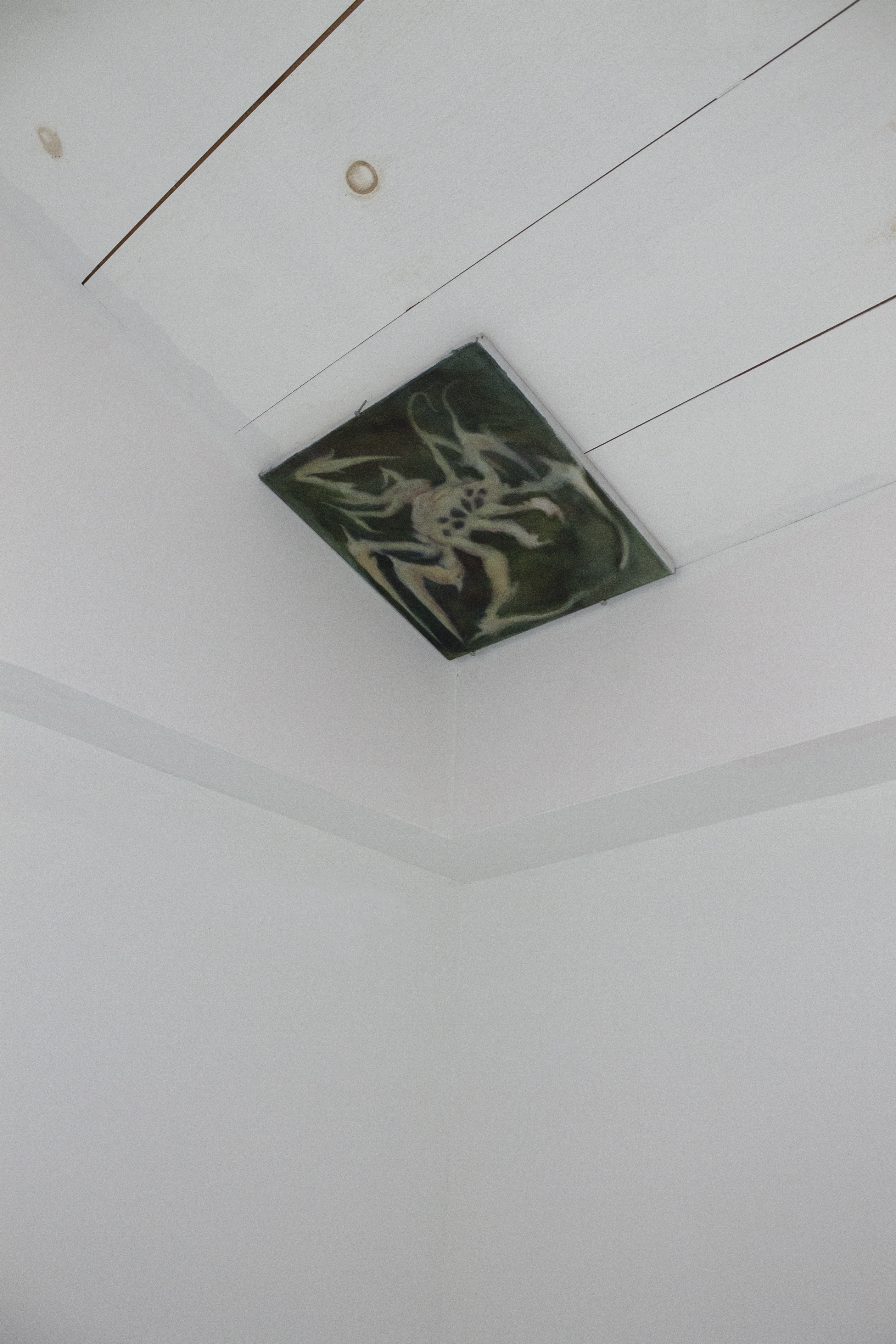

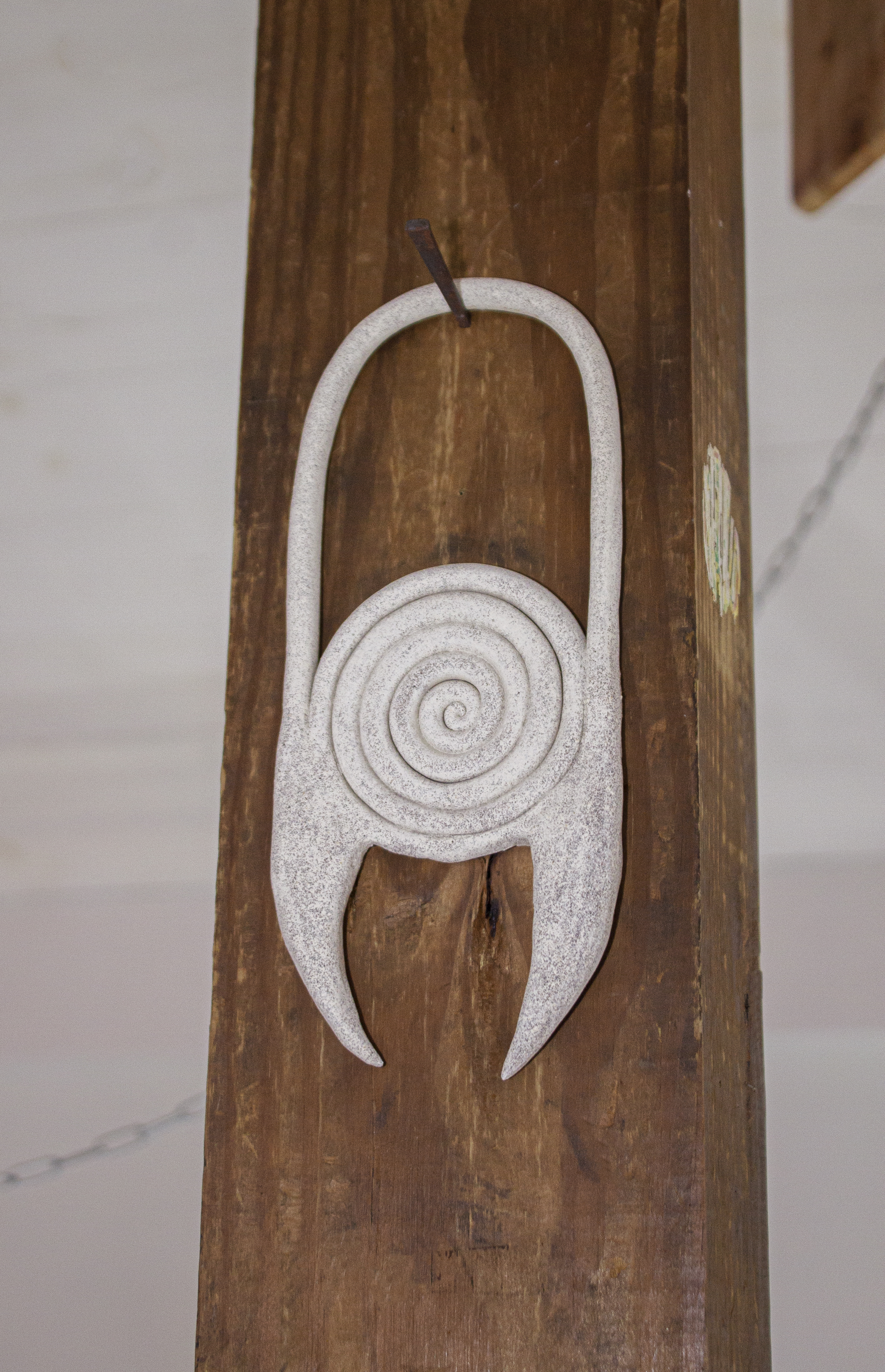

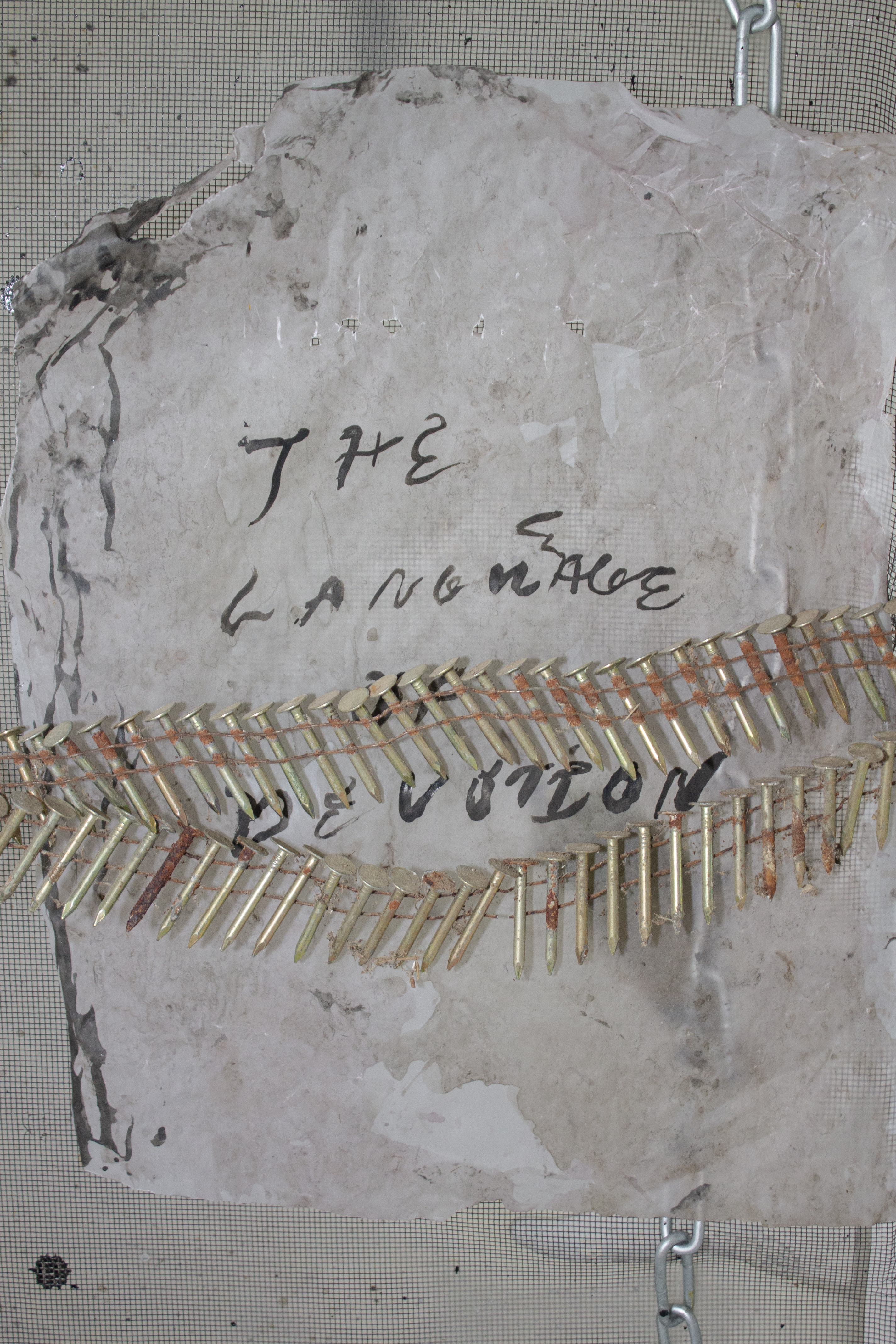
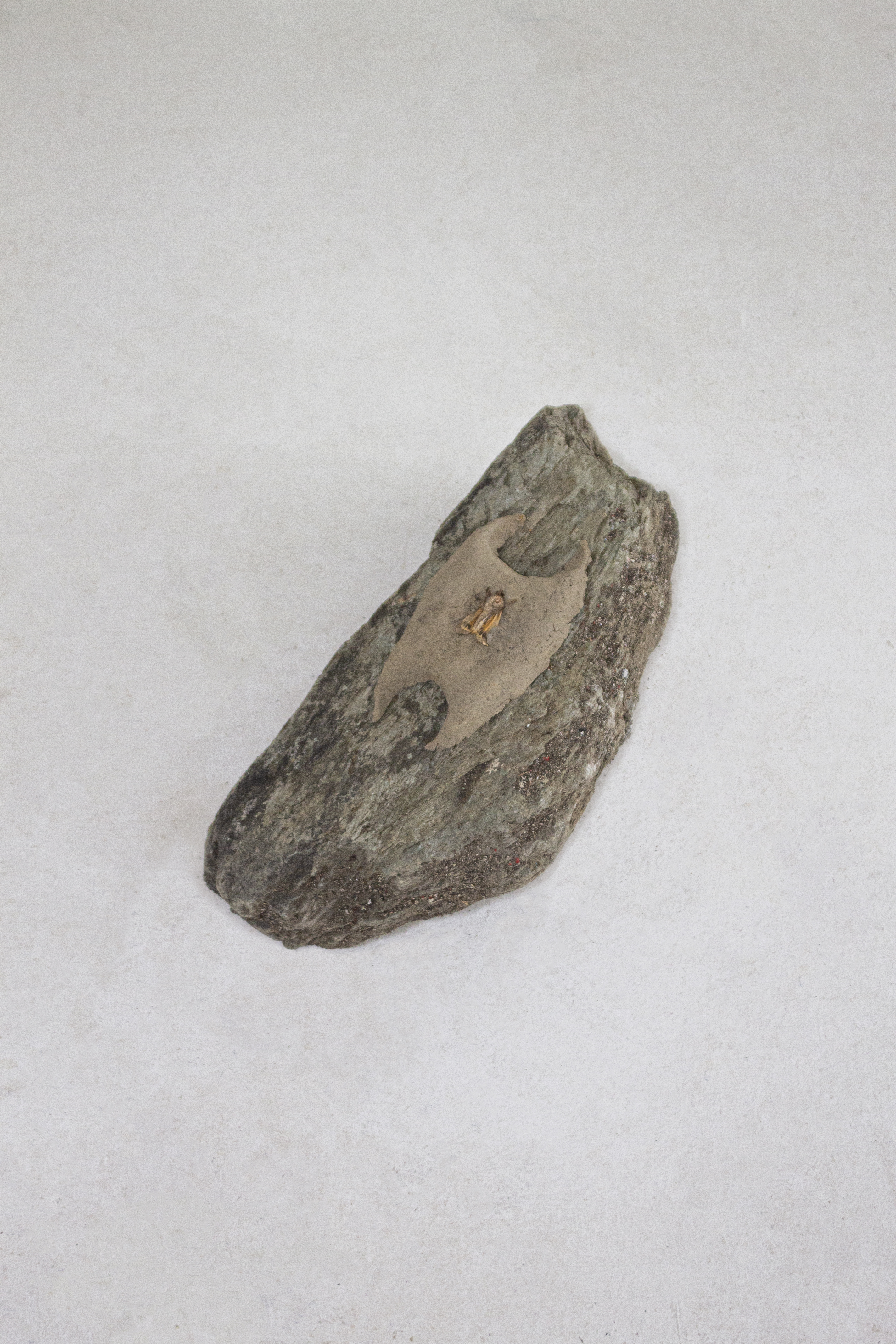
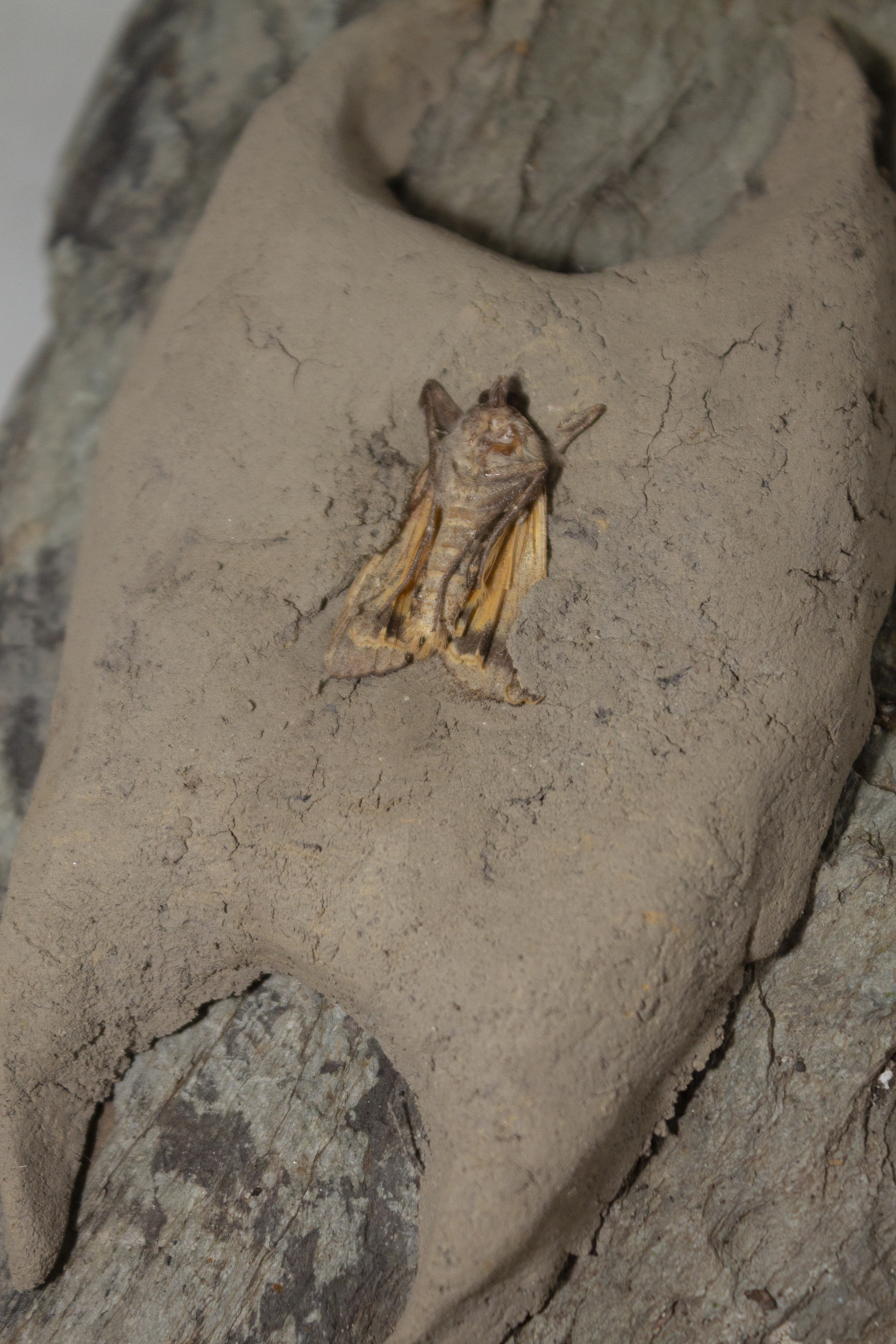



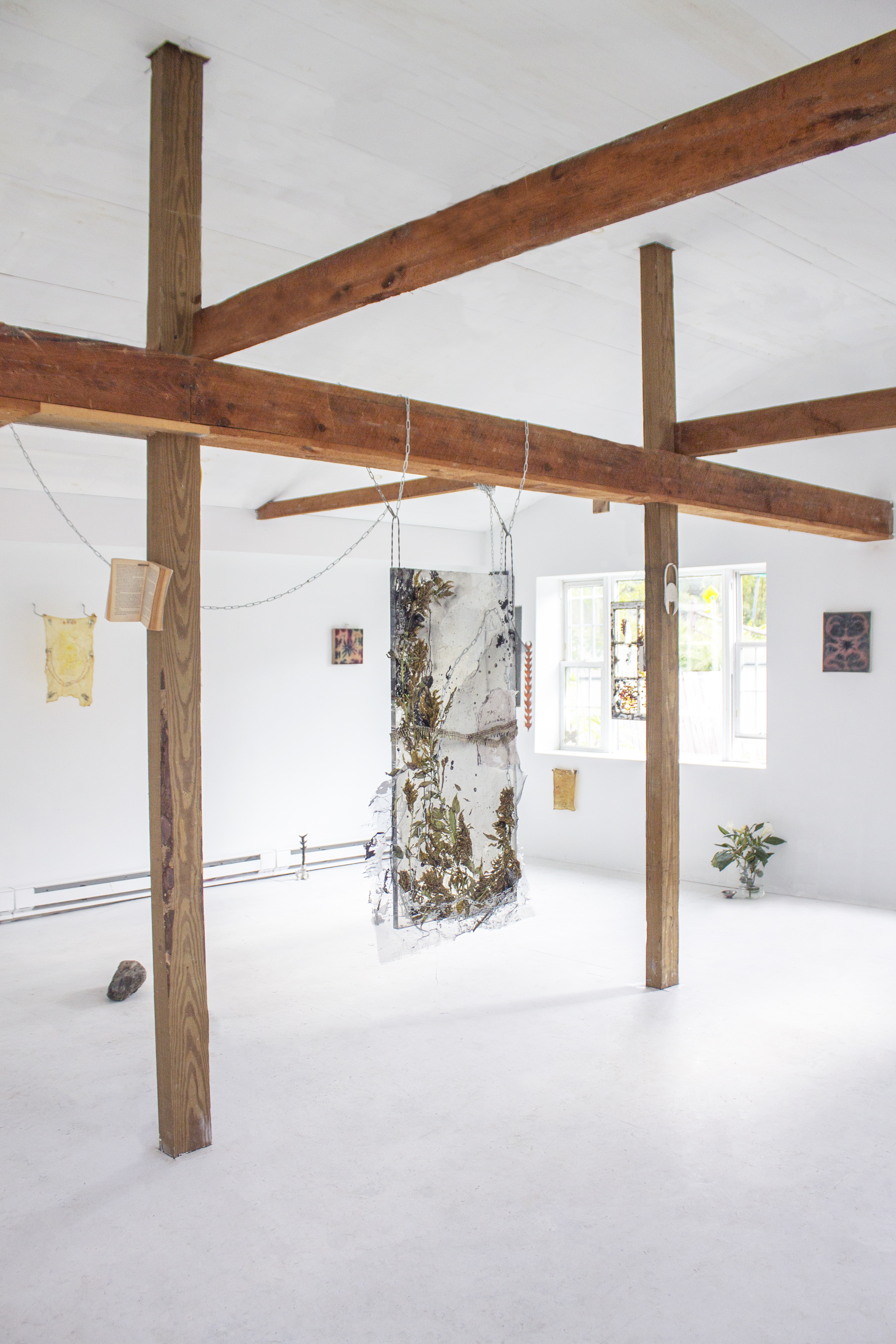
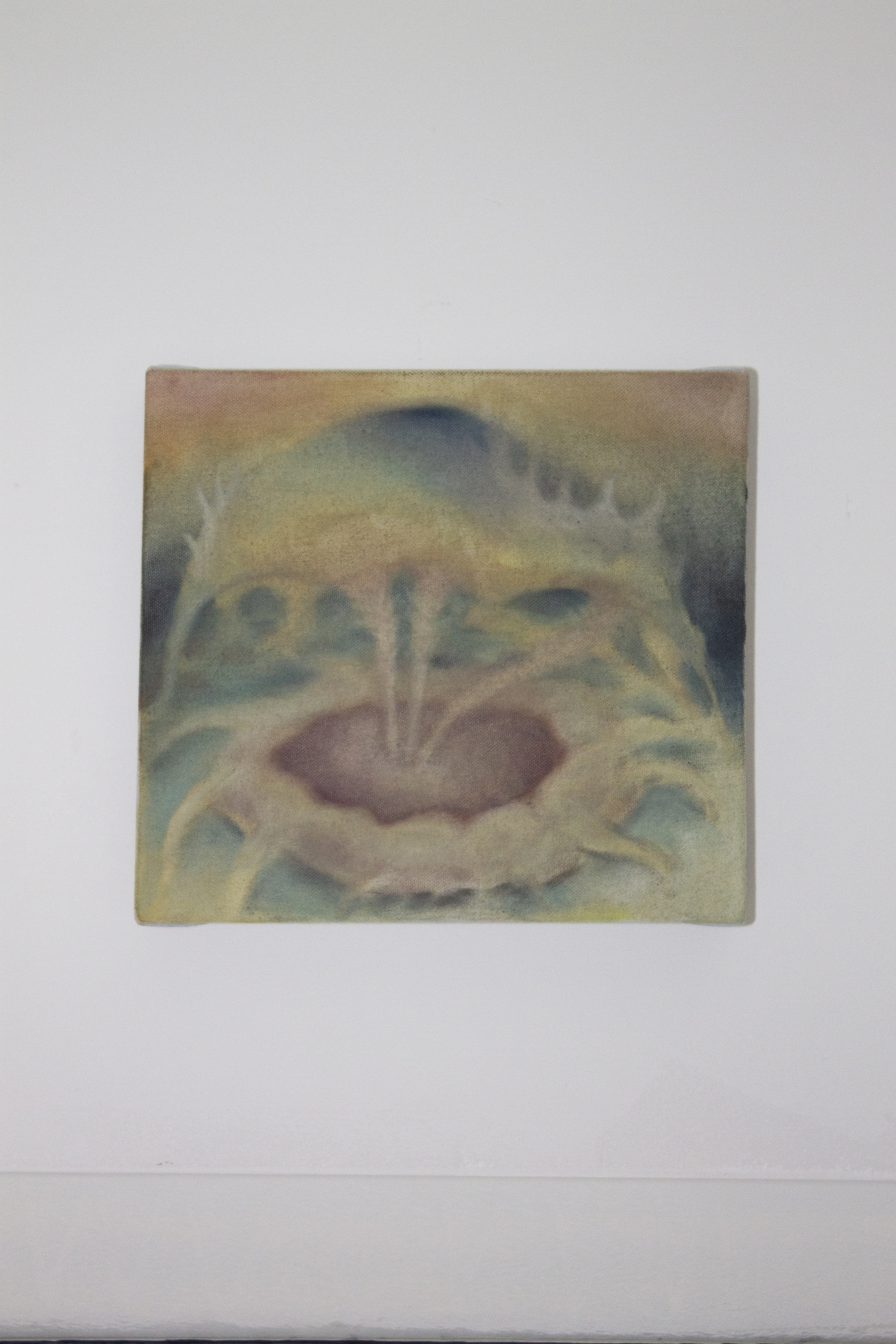
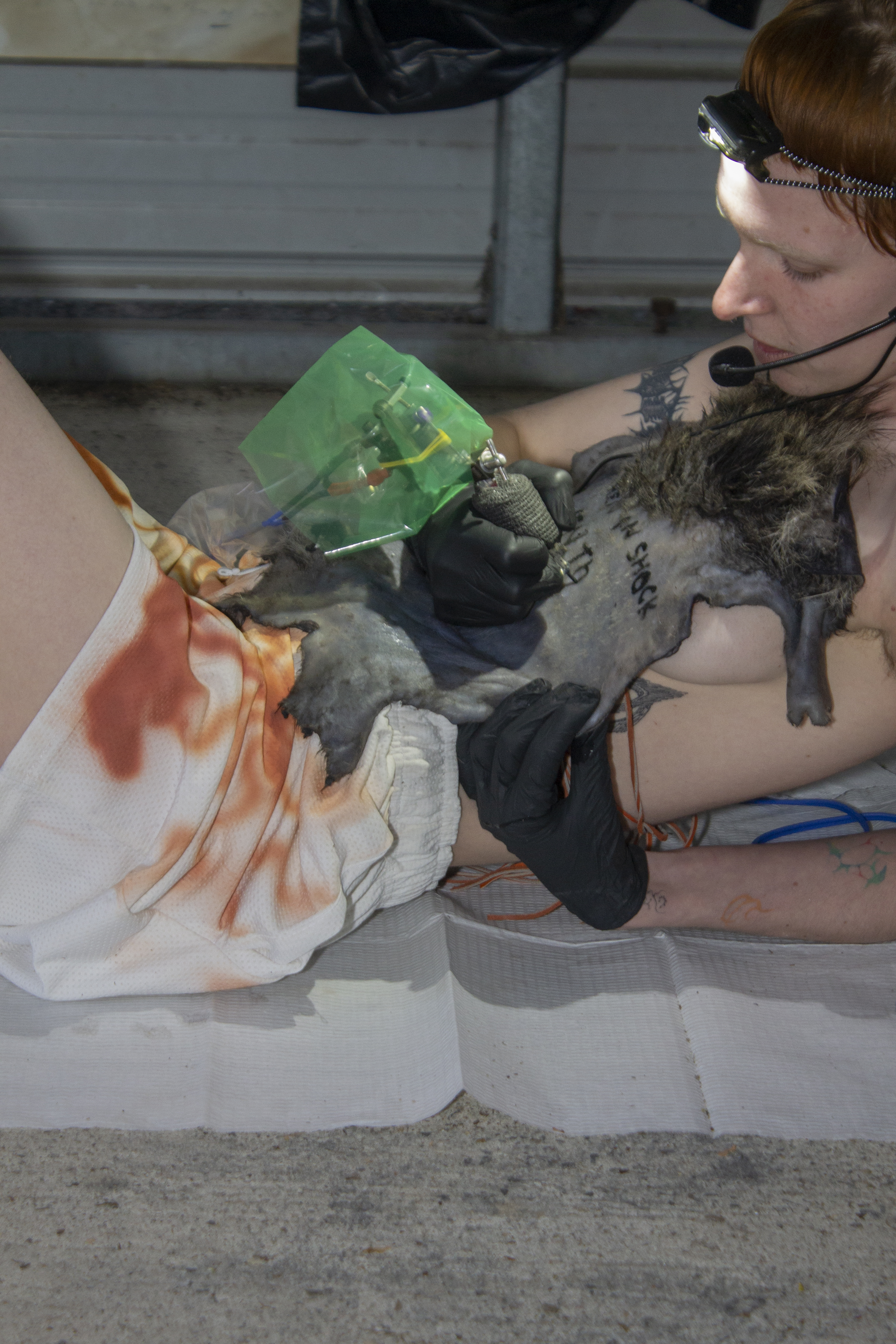

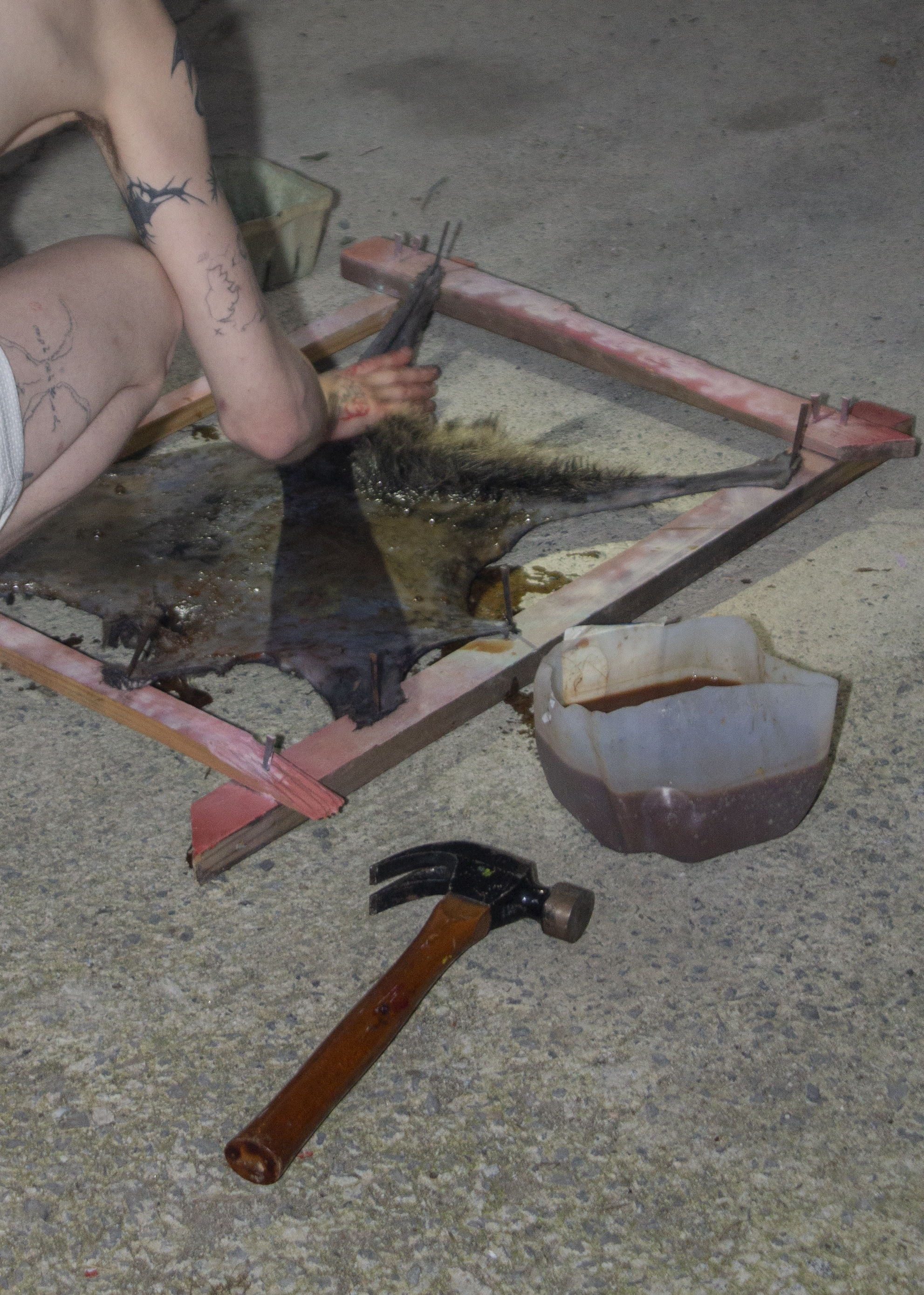
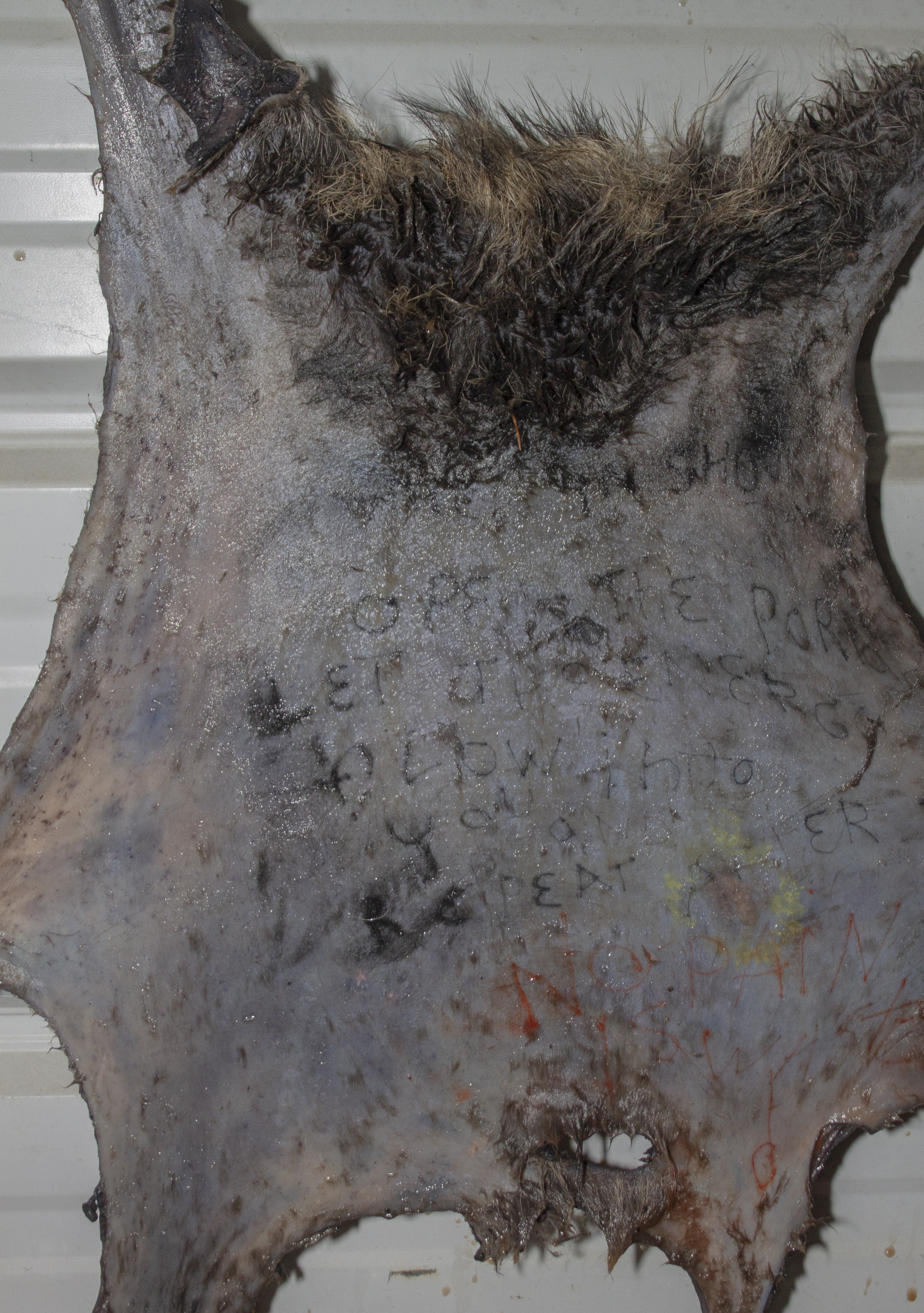
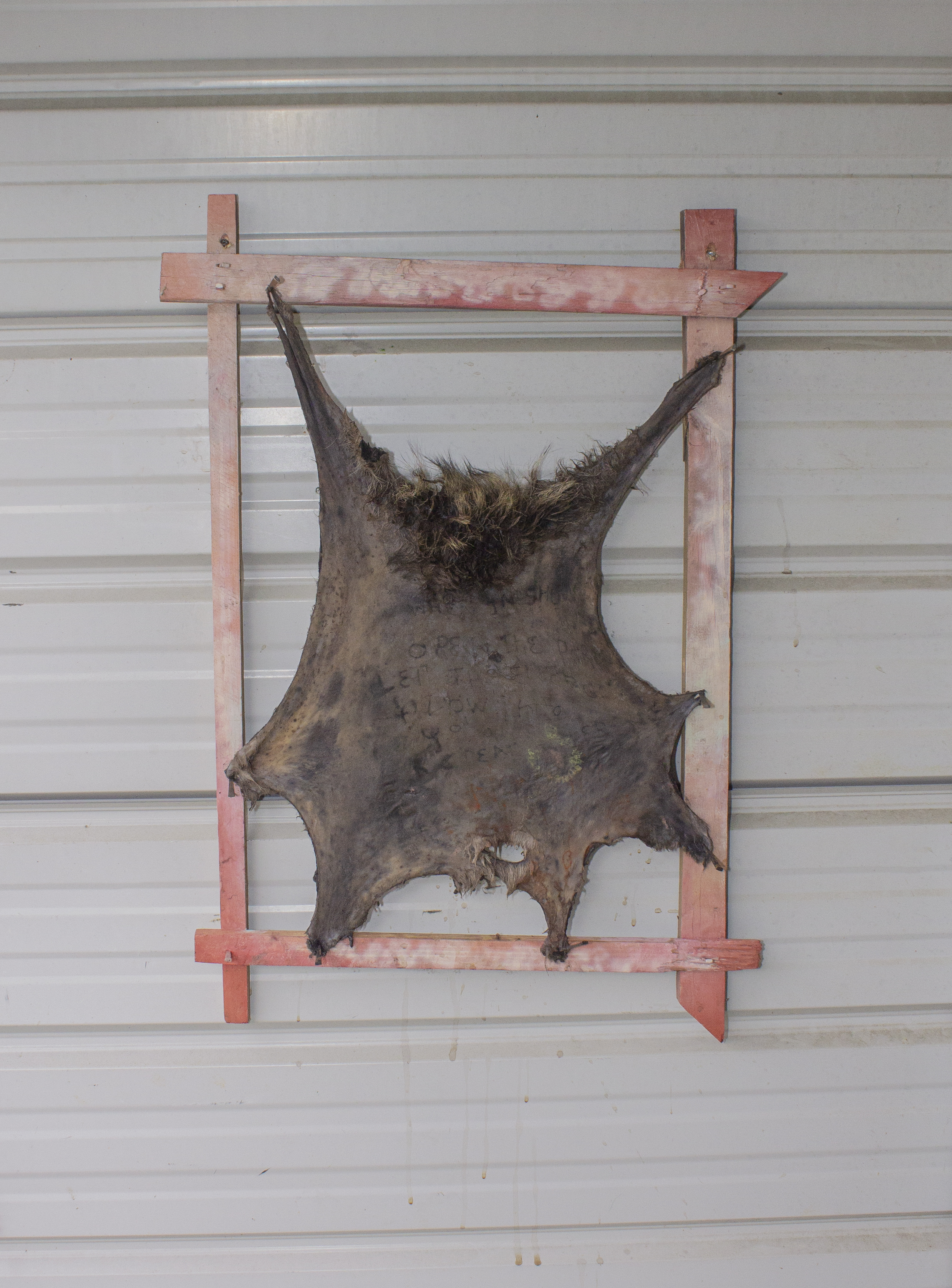

Bliss: presents a selection of works by Julien Parant-Marquis, Cléo Sjӧlander, éli del and Alex Patrick Dyck exploring Chepurin’s definition of “bliss”. In Chepurin’s text, bliss is an alternative to the modern world, it is a state of undivided immanence, akin to Levinas’ escape. Bliss frees us from thelos into a state of non-temporal oneness. Bliss is the answer to alienation, it is non-productive and utopic.
The paintings, sculptures and text-based works that will be shown operate in states of in between - in between temporalities and in between materialities. They are works that push the viewers in a state of uncertainty and uncanniness by combining precision to excess, and beauty to the grotesque. If bliss is the aftermath of annihilation (like Chepurin posits) it is also the essence of rebirth, the beatitude of resilience and joy in revolution.
While Parant-Marquis’ surreal paintings invite the viewer into an abstract interior reminiscent of organs, plant life and caves; Sjӧlander combines elements found in nature (insects, vegetation) to tentacular ceramic objects that penetrate the space like stalagmites. éli del’s work is imbued in spiritual ritual: bioengineered skins and animal hides are tattooed with sigils and suspended, evoking the gut bacteria’s wisdom and celebrating the parasitic relationships intrinsic to nature. Finally, Patick-Dyck’s text based works act as altars, poems celebrating states of devotion, intoxication, grief and ecstasy. These are maximalist calls to the divine, that celebrate all over-pouring. Ink drips on fabric, images are collaged between flower petals, wine stains and dirt dye surfaces with urgency.
BLISS
“Bliss collapses the categorial structure of the world’s articulation and equals an absolute freedom from the world, in which all binaries that serve to constitute the world are immediately revealed as null and void – including the binaries of subject and object, self and other, being and nothingness, life and death, day and night. Bliss is apocalyptic: it dissolves the world as in water, consumes it as in fire, so that nothing remains except the ecstasy of the world’s “annihilation” or “termination”.
K. Chepurin, Romantic Bliss –or, Romanticism Is Not an Optimism. “Thus, escape is the need to get out of oneself, that is, to break the most radical and unalterably binding of chains, the fact that the I [moi] is oneself [soi-même].” E. Levinas tr. B. Bergo, On Escape (De l’évasion)
*Curated by Marie Ségolène at Babayaga Gallery in Hudson, NY, 2022.